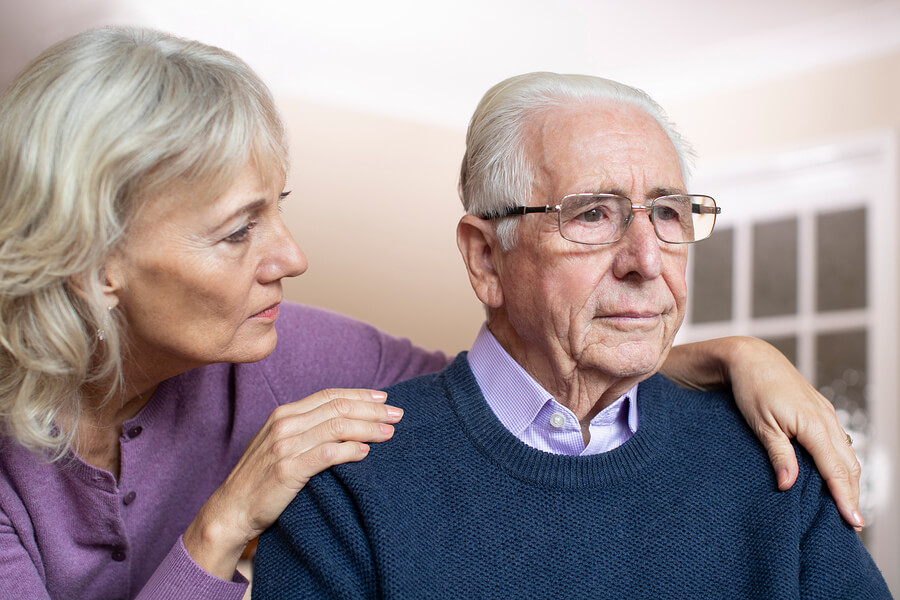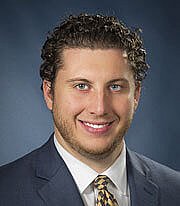The last five governors of New York State have tried twenty eight times to change the practice known as “spousal refusal,” the right of a well spouse to decline to allow their finances to be stripped to the bone so that a sick spouse can qualify for Medicaid.
The governor’s proposals to eliminate spousal refusal for Medicaid and extend the penalty period for community based services are draconian at best, especially on Long Island. The amount a married couple may retain is set nationally. This means a couple in Iowa can retain the same amount as a couple in New York. A resource limit of approximately $176,000 and joint income of approximately $3,000 per month (including Social Security) will leave both spouses impoverished; especially since the average cost of facility on Long Island ranges from $550 -$625 per day.
How can a well spouse live on Long Island with monthly income of $3,000? In middle class communities, real estate taxes can easily exceed $8,000 per year. Our utility costs are the highest in the nation and cannot be deducted. Now factor in the cost of food, clothing, health insurance and other necessities: a well spouse can never make ends meet and may well find them scrambling to live with children or other relatives at best. The end of spousal refusal could leave well seniors homeless.
I strongly urge you to oppose these cuts. Almost weekly there are stories in the newspapers of providers who defraud the system, About four months ago, a health care provider was arrested for almost $1,000,000,000 in Medicare and Medicaid fraud. The state’s funds are better served rooting out fraud.
As a past president of the National Academy of Elder Law Attorneys and having practiced in this area for almost 40 years, I have all too often seen the fear and torture my clients have faced. We need to fight back, now.
What can you do?
Contact your elected officials by phone or email – don’t wait for this law to change while we are focused on COVID-19.
Here’s how to find your New York State Assembly Member:
https://nyassembly.gov/mem/search/
Here’s how to find your New York State Senator: https://www.nysenate.gov/registration/nojs/form/start/find-my-senator
If you are anticipating the need for a family member to apply for Medicaid, then now is the time to discuss this situation with an experienced Elder Law attorney. The rules are strict, and this is not something that a layperson can do.
Just a simple Medicaid application, when the family has no assets other than a home, is not an easy task. New York State’s Medicaid laws and requirements are complex.
There is also the issue of a five-year lookback. That is, any property transfers to another family member should be done five years prior to any Medicaid application. Medicaid looks carefully into how the family’s assets are owned, and has the right to review financial transactions five years prior to the applications.
Planning for a Medicaid application rarely occurs in a perfect world. Most of our clients call us when their spouse or a family member is in the hospital and things look dire. They will either first be leaving the hospital to go to a rehabilitation facility and then to a nursing home, or going from the hospital directly to the nursing home.
There are planning strategies that we can do in an emergency situation, but it is far better for clients to come and see us in advance, so that proper planning can be done. This eliminates a tremendous amount of stress and worry, from the well and the sick spouse. The family is less stressed because they know that their parent’s legal and financial affairs are in order. The transition from hospital or rehab center to a nursing care facility is less overwhelming, because the plan has already been put into place.
No one wants to go to a nursing home. But planning to protect the spouse and the family’s assets is a necessary part of aging in America. Left undone, the well spouse is left in a precarious financial situation.
If you have questions about Medicaid, please call the office at 516-307-1236. The conversation is free and confidential, and you will gain some peace of mind knowing more.




